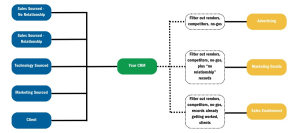 If you’re new to freelancing, the first thing you’ll notice is that clients have this very annoying habit: they want to see examples of your work.
If you’re new to freelancing, the first thing you’ll notice is that clients have this very annoying habit: they want to see examples of your work.
This means that prior to establishing an account at any of the online freelance sites, you need to have some kind of portfolio. I’m a writer, so most of what I’m saying here will be geared to writers, and it probably fits graphic designers without much tweaking. However, the principles apply to virtually any skill you want to build a freelance career around.
How to establish a portfolio
If you’re a budding writer, you have a wide variety of places on the Internet where you can publish articles that will help you create an online portfolio. You might even get paid a few dollars along the way.
The first place is your own website. You should certainly establish a website for yourself and please don’t settle for a free website on one of the blogging platforms, such as WordPress.com, Blogger.com or Tumblr.com. That immediately tells prospective clients that you aren’t really a professional.
Get your own domain and set it up with a nice WordPress theme. Many recommend signing up with Blue Host (frankly, I’m not with them yet, but I’ve heard so many good things, I’ll be switching soon.) Keep your design simple and start posting articles. Be sure that your grammar and spelling are on point. Illustrate your articles with nice graphics. I wrote a very short article on easy ways to create good graphics. Knowing how to provide visuals with your articles will help set you apart from the crowd by drawing more attention to what you publish, making your work appear more polished and boosting your social shares.
Sites where you can publish
Beyond your own blog, there are quite a few sites where you can publish articles on virtually any topic. I originally started with the Yahoo! Contributor Network program, but that has been discontinued. You might select one of the many “content farms” to get some of your first articles out on the Internet. These used to be very popular, but with changes in the way Google rates websites, they have fallen mightily. However, these are still around and are not too bad:
- About.com
- Demand Media Studios, which publishes LIVESTRONG.com and all the eHow websites. (I wrote here early on.)
- Examiner.com
- HubPages
- Digital Journal
These sites publish on a range of topics using a variety of formats. Demand Media Studios will give you some very narrowly defined specifications about how articles must be written and formatted. Stray from their guidelines and you won’t get published. Below are places where you can do some general blogging or content creation for actual clients, although you will need some samples of your work to get your foot in the door.
- Fiverr. I love Fiverr. I’ve never worked through this site, but I’ve hired freelancers for various $ 5 gigs. If you do quality work you can get your feet wet here and start putting together a good portfolio.
- BlogMutt. This service connects folks who need content with writers. You can work something up and submit it. It may get accepted. The last I heard, pay is $ 8 for a 300-350 word article. If you’re good and work at it you can get better and higher paying assignments.
Let me toss out one more idea to you – and for some this may be the best way to go. If you know someone whose business has a website and you have a grasp of the content area, ask if you can provide some articles. If you’re able to provide quality content, it could even turn into your first gig that pays well.
I’ve only listed a few sites here that will help you get your online portfolio established. There are many more and new ones pop up all the time…while others go away or change their business model. Search Google for content farms and see what you get. All the warnings you’ll see as you scan search results are for people who want to take material from content farms to post on their own websites or use them for backlinks. That’s not how you will use them; however, don’t grab content from these sites or link from a content farm back to your site. Google hates content farms and their loathing will spread to you.
(184)
Report Post







